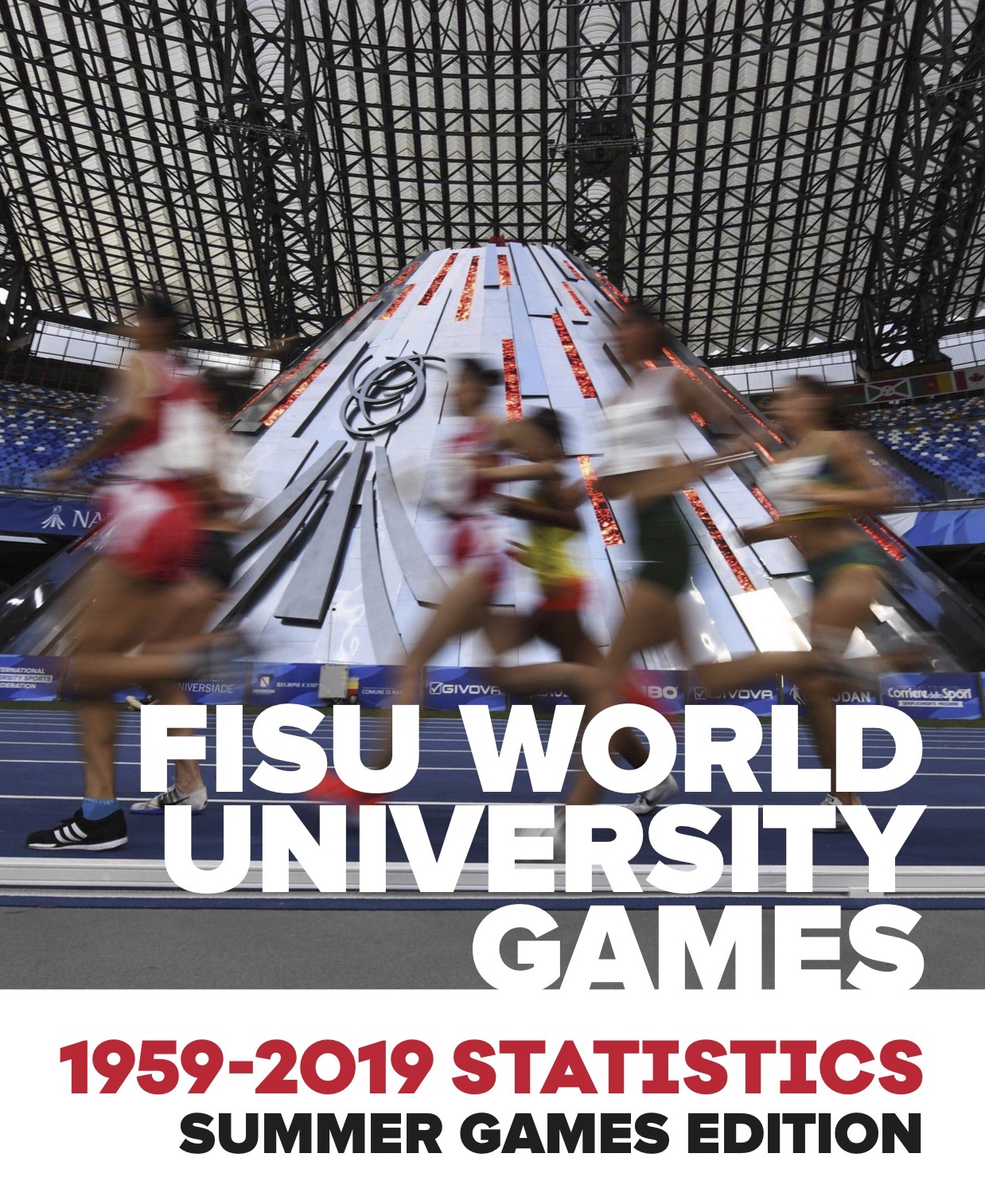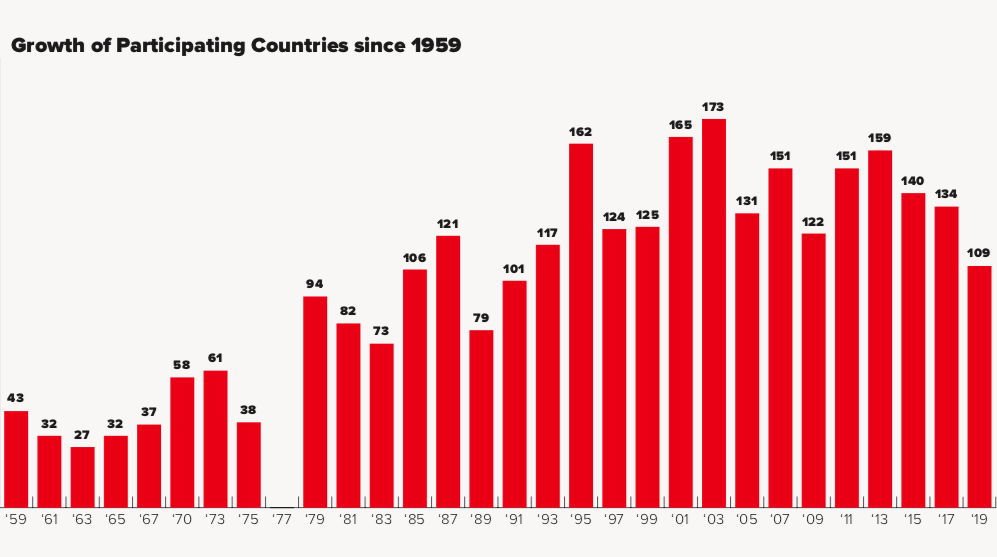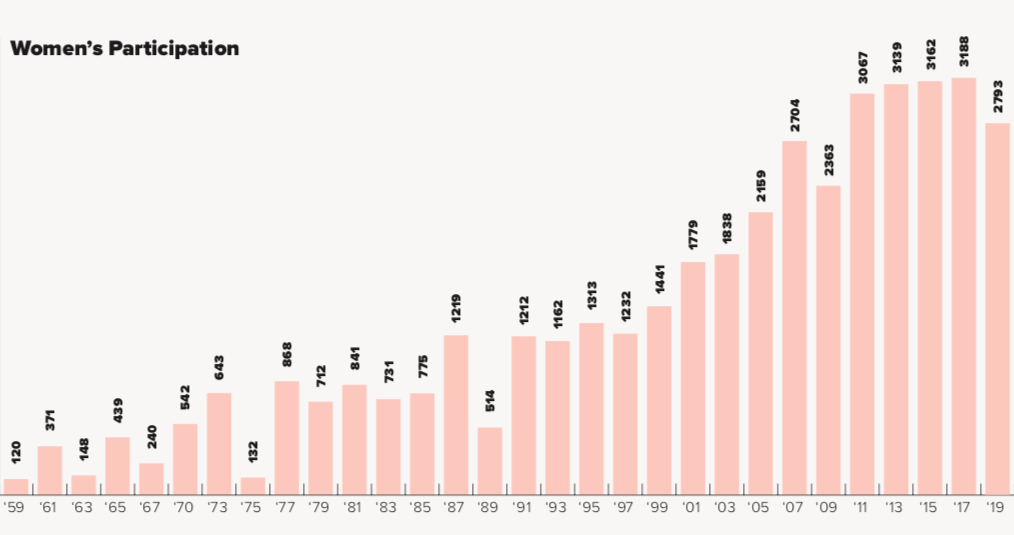 The FISU World University Games, earlier known as the Universiade, completed a rich history of 60 years last year, with Napoli 2019 marking the 30th edition of the Summer Games.
The FISU World University Games, earlier known as the Universiade, completed a rich history of 60 years last year, with Napoli 2019 marking the 30th edition of the Summer Games.
Now, everything you need to know about the thirty summer editions of the FISU World University Games – records, results, participation figures and more – is encapsulated in the newly published 1959-2019 summer games statistics book.
“I am proud that we can now share with you a statistical record of participation in FISU’s competitions that spans 60 historic years,” writes FISU President Oleg Matytsin in the book’s foreword.
“It shows our development, to the point where we have become a truly global organisation whose reach also extends across an impressively wide range of sports.”
GROWING PARTICIPATION
For the first time, this statistics book includes medal tallies of all editions and highlights the growth in participation from 43 countries in Turin, Italy, in 1959 to 109 countries in Naples, Italy, in 2019. Italy, interestingly, has organised five editions of the FISU Summer Games, including the first and fittingly, the thirtieth as well.
The record-setting edition was Daegu 2003 in Korea, when 173 countries participated.

The number of sports and disciplines contested in the Games has also gone up, from just seven in 1959, to 27 in Kazan, Russia, in 2013. The Summer Games programme has now been locked at 15 compulsory sports and up to three optional sports – which was the programme adopted at the Napoli 2019 Summer Universiade.
 The rise of women’s participation
The rise of women’s participation
One of the strongest strides forward for FISU has been in the area of gender equality and women’s participation in the flagship FISU event. From 120 female athletes in 1959, the number went up to 2793 at Napoli 2019, almost equal to the number of male competitors.
What was once a huge difference between the male and female competitors at a Universiade, has become nearly equal in the most recent editions.
The FISU Summer Games statistics book lists the medalists by sport and discipline for all editions, from the first to the most recent, including optional sports like aerobics and softball that were part of the programme in some editions.
The medals tally section makes for interesting reading, as Russia, Korea, Japan, China and Taipei have emerged on top of the tally for several recent editions, while USA was almost invariably atop the charts in the 80s and 90s. In even earlier editions, 1959 onwards, Italy was a regular on top of the medals tally.
Truly historic performances
The 200m at the Mexico City 1979 Summer Universiade had astonishing performances in the men’s (especially) as well as the women’s 200m dash by the winners. Pietro Mennea’s 19′ 72 was one of the longest-standing world records in men’s athletics history, and Marita Koch’s 21′ 91 that same year is still a world-class performance today.
The full FISU Summer Games statistics book can be downloaded here.



